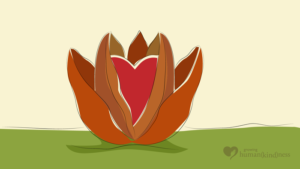You could be eating sugar in your salad dressing, spaghetti sauce, cough syrup, crackers, and barbeque sauce, without even being aware of it. One aspect of healing your relationship with sugar is uncovering the hidden sources of sugar in your diet. Here are other names for sugar that appear in many processed foods:
Agave
Barley malt
Beet sugar
Brown sugar
Cane sugar
Carob syrup
Corn syrup solids
Corn syrup
Date sugar
Diatase
Diastatic malt
Dextrose
Ethyl Maltol
Fructose
Fruit juice
Fruit sweetener
Galactose
Glucose
Glucose solids
Grape sugar
High fructose corn syrup
Honey
Invert sugar
Lactose
Malt syrup
Maltodextrin
Maltose
Mannitol
Maple sugar or maple syrup
Molasses
Raw sugar
Refiners syrup
Rice sugar
Sorbitol
Sucrose
Turbinado sugar
Health food stores, Trader Joe’s, Whole Foods and even Costco are good places to look for sugar free options like salad dressings, ketchup, condiments, and other premade foods. At the same time, be careful. My husband came home with a case of organic tomato sauce from Costco, and it had sugar in it. Same for the organic salsa from our local health food store.
I’ve learned to read labels – even if it’s an organic food or from the health food store. I’ve also learned to make my own versions of foods that typically have sugar in them. We make our own salad dressings – super easy – pasta sauces, and Mexican sauces. We also cook – a lot. I can get tired of cooking, and I appreciate that it’s a lot of work to shop for, prepare and cook your own food. We also spend a lot of money on fresh, whole foods. At the same time, I appreciate how much better I feel eating my own cooking, as it nurtures my body.
When you’re not at home, do the best you can. In restaurants, I usually ask if sugar has been added to an entree. Restaurants are usually happy to omit it – such as the time I was served a baked yam sprinkled with cinnamon sugar. If a salad dressing has sugar in it, I ask for oil and vinegar on the side. I love eating at places like a Whole Foods buffet, where the ingredients are listed right on the dish.
Finding the hidden sources of sugar takes some effort, but over time, rest assured that it does become second nature. I eat and shop much differently than I did even 5 years ago. We can learn new ways of eating and shopping, and these new ways of caring for ourselves can become routine – routines that feed us in body, mind and spirit.
The harder part, I think, is with our heads – the feelings of deprivation, the resistance, the sadness in not eating sugar, and the frustration in having to pay so close attention to food. How do we cope with these? How do we care for them so we can make healthy, life affirming choices? This is why I wrote my sugar courses.
If you find yourself getting caught in feelings of deprivation, resentment, and unhappiness about not eating sugar, I gently invite you to use these resources. In these products, I share everything I’ve learned, so we may all find greater freedom from sugar addiction.

I thought you might like to know that there is a sugar called Sorghum. It is a molasses type of sweetener that is not used too much any more, but southerners should recognize it. I had it as a little girl so it should still be out there.
Hello!!! http://www.firstourselves.com is one of the most outstanding resourceful websites of its kind. I enjoy reading it every day. http://www.firstourselves.com rocks!
First, I love sweets!
Second, I love so many other natural foods that sugar is often untouched for days, sometimes weeks.
Third, not knowing what binge-purge and sugar addiction experiences are, and wanting to be understanding as possible, I would offer that unrefined sweet-tasting foods are both beneficial to health, and when part of an avid taste-bud acumen of exploring the enormous cuisine of the world, having a balanced diet that includes natural sweets is the norm.
And, fourth, having a craving for sugar has two sides to the story. One, and in agreement with Jill, who shares my last name, BTW!:-)), is that refined sugar causes the exact same body chemical reaction as Crack Cocaine, and thus is contributive to a vicious cycle of un-met appetite for a feeling of wholeness, which seems to be fulfilled ONLY by more refined sugar, or whatever is being abused.
The other side to the sugar-craving story is actual dietary deficiency, which has become satisfied over a lengthy time frame, by eating sweets, especially refined sugar with its cocaine-like addiction disorder attributes, and which masks the true deficient nutrient. Refined sugar is simply an unstable, immediately assimilable “food,” that feeds all the disease organisms in one’s body BEFORE feeding healthy body tissue.
Natural, unrefined, sugar-tasting sweet foods do not harm body metabolism, unless they are consumed outside of balanced nutrition. In fact, natural sweet foods contribute to enjoying a wider range of foods, and, combined with other foods, to make complex recipes, can contribute to a very healthy diet.
I hope people see the true need for natural sweet foods for balanced diet, and do not get hung out to dry on overkill reactions to eating anything with natural, complex sugars. Natural sugars cannot induce addiction body chemistry. But, one who craves sweet-tasting foods is very likely to have a severe deficiency of some nutrient, and may well need a mega-dose of the nutrient to meet and overcome the conditioned craving for sweet-tasting food.
Hope this helps some to find out the reason for their sweet craving, and to then relax and enjoy the many forms of sweet tasting, natural sugars foods.